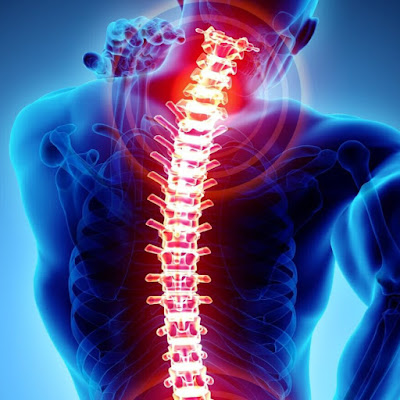Neuropathic pain is a chronic condition affecting the nervous system, leading to discomfort, tingling, and burning sensations in various body parts. While medical treatments are available to manage neuropathic pain, prevention is always better than cure. Fortunately, there are lifestyle changes that can help prevent neuropathic pain and reduce the risk of developing this condition. This article will discuss how lifestyle changes and early intervention can help prevent neuropathic pain.
Understanding Neuropathic Pain:
Before we delve into the preventive measures, it's essential to understand what neuropathic pain is and what causes it. Neuropathic pain is caused by damage or dysfunction to the nervous system Majun Suranjan. This damage could be due to various factors, including:
- Diabetes
- Infections like shingles or HIV
- Autoimmune disorders such as multiple sclerosis or lupus
- Trauma or injury
- Nutritional deficiencies
- Exposure to toxins or chemotherapy
- Surgery or radiation therapy
When damaged nerves are damaged, they may send pain signals to the brain without injury or inflammation. The pain may be constant or intermittent, ranging from mild to severe. Some people also experience numbness or weakness in the affected area.
Preventing Neuropathic Pain
Managing Chronic Medical Conditions:
One of the best ways to prevent neuropathic pain is to manage any chronic medical conditions you may have effectively. For example, if you have diabetes, controlling your blood sugar levels can help prevent nerve damage. Similarly, getting prompt treatment for infections or autoimmune disorders can prevent complications that lead to neuropathic pain.
Maintaining a Healthy Weight:
Being overweight or obese can put extra pressure on the nerves, leading to damage over time. Losing weight and maintaining a healthy weight can prevent neuropathic pain and improve overall health. It's important to manage weight through healthy eating and regular exercise.
Exercising Regularly:
Regular exercise is beneficial for overall health, but it can also help prevent neuropathic pain. Exercise increases blood flow to the nerves, which nourishes them and reduces the risk of damage. Exercise also helps maintain a healthy weight, which, as mentioned earlier, is essential for preventing neuropathic pain. However, choosing low-impact exercises that don't put undue stress on the joints or nerves, such as swimming or walking, is vital.
Eating a Balanced Diet:
A balanced diet with vitamins and minerals is crucial for good nerve health. For example, Foods rich in vitamin B12 can help prevent nerve damage. Similarly, foods high in omega-3 fatty acids, such as fish, can reduce inflammation that leads to nerve damage. It's also important to limit the consumption of processed foods, which can be high in sugar and unhealthy fats.
Avoiding Toxins:
Toxins like alcohol, tobacco, and drugs can damage the nerves and lead to neuropathic pain Herbal Supplements. Minimizing or avoiding these substances altogether can help prevent nerve damage. If you have an addiction to any substance, seeking professional help is critical to managing and overcoming addiction.
Preventing Injuries:
Injuries that affect the nerves, such as a herniated disc or carpal tunnel syndrome, can lead to neuropathic pain. Taking steps to prevent injuries, such as practicing good ergonomics at work or wearing protective gear during sports activities, can reduce the risk of nerve damage.
Prompt Treatment for New Symptoms:
If you experience new symptoms that could indicate nerve damage, such as numbness or tingling in the hands or feet, seek prompt medical attention. Early intervention can prevent further nerve damage and minimize the risk of developing neuropathic pain.
Conclusion:
Preventing neuropathic pain is possible with lifestyle changes and early intervention. Managing chronic medical conditions, maintaining a healthy weight, exercising regularly, eating a balanced diet, avoiding toxins, preventing injuries, and seeking prompt treatment are all essential steps to control neuropathic pain.
While not all cases of neuropathic pain can be prevented, these lifestyle changes can reduce the risk of developing this condition. If you're already experiencing neuropathic pain, it's never too late to make these changes to improve your overall health and manage the symptoms effectively.


Comments
Post a Comment